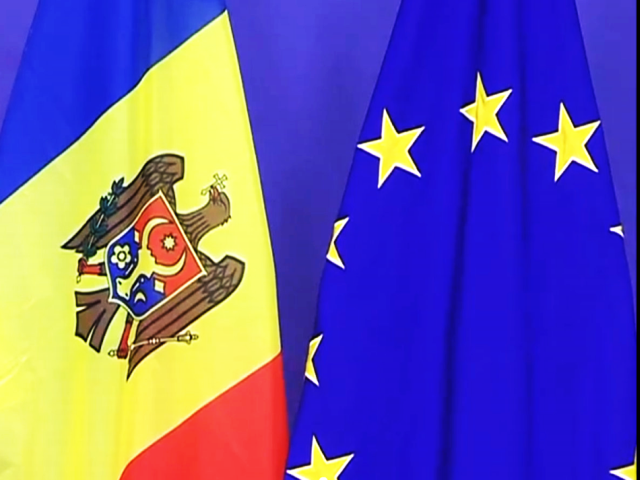The Republic of Moldova: how close is it to the EU?
The relations between the Republic of Moldova and the European Union were formally launched in November 1994.

Corina Cristea, 09.02.2018, 13:28
The relations between the Republic of Moldova and the European Union were formally launched in November 1994, when the two parties signed a Cooperation and Partnership Agreement, which came into force four years later. Subsequently, the rapprochement between the EU and the Republic of Moldova was strengthened in 2004 by including Moldova into the EU’s Neighborhood Policy. Two years later, it was accepted as a full member in the South-East European Cooperation Process and as of May 2009, Chisinau has been part of the Eastern Partnership initiative.
Taking the natural steps forward, in late November 2013, the Republic of Moldova signed the Association Agreement with Brussels, and in September 2014, the 28 EU foreign ministers endorsed the enforcement of the agreement. Currently, Brussels and Chisinau are strengthening ties by means of a gradual economic integration, alongside with deepening cooperation in the political field. In other words, by means of all the actions it undertakes and with support from Brussels, the pro-Western government in Chisinau remains committed to the objective of Moldova’s joining the European Union.
University Professor Stefan Popescu, who has recently been a guest on RRI, has doubts about this objective being fulfilled any time soon: “Who can believe that, given the presence of Russian troops in Transdniester, the Republic of Moldova will join the European Union? It’s true that reforms are necessary, but why? Because the Republic of Moldova has been going through a process of depopulation, which is much faster than in Romania, and it runs the risk of becoming a failed state. It needs investments, but unfortunately it is very difficult for an oligarchic state to gain investors’ trust. Romania has a big responsibility in this respect and would be glad to see more Romanian companies crossing the Prut River, but it’s Chisinau’s role to facilitate this crossing.”
The situation in the separatist pro-Russian region of Transdniester, in the east of the Republic of Moldova, is indeed sensitive and abounding in implications. The Russian Federation committed to withdrawing is troops and military equipment from the territory of Moldova as early as the Istanbul Summit of 1999, but so far it has only done that with part of the heavy armament. Last year, the troops stationed in the region carried out more than 200 drills and another 20 since the beginning of this year alone.
The director of the Centre for Conflict Prevention Iulian Chifu explains the situation in Transdniester: “There are two categories of forces in the separatist region. On the one hand there are the so-called peacemakers, although nobody has ever called on the Russian Federation to participate in any peacekeeping formula, and still it is there with these troops, forces of the Russian Army’s Operative Group. And there has also been the 14th Army, which should have formally withdrawn from the region already, according to the commitments made in Istanbul in 1999. Therefore, there are two categories of troops. Besides them, there is a third one, which is paramilitary, of the so-called separatist regime, which is made up of some 10-12,000 people, mostly former soldiers in the Russian Army, who have started families and settled in the region. So, there are three categories of troops. The problem is that the so-called peacekeepers are staging offensive exercises together with the separatist troops and with the Russian troops of the Operative Group. And here is where the biggest problem lies, because by carrying out such maneuvers, the Russian Federation actually renounces its status of independence and non-involvement in the conflict.”
The military exercises carried out by the Russian troops deployed in the Transdniester region have been aimed, among other things, at combating terrorism and ensuring training for soldiers, according to releases carried by the official web-site of the Russian Defense Ministry. However, the Moldovan Foreign Ministry believes that these exercises are a direct and brutal threat to Moldova’s sovereignty and territorial integrity.
Here is political analyst Vlad Turcanu, a former presidential adviser in Chisinau: “The truth is that the Chisinau authorities cannot prevent hostile and worrying military exercises such as those held regularly on the left bank of the Dniestr River lately. Security experts are extremely worried about that, although society does not share the same perception.”
In Bucharest, things are clear. Romania’s strategic objective as regards its relations with the Republic of Moldova remains the latter’s European integration, as it is the only option that can ensure the prosperity, safety and freedom of the Moldovan citizens, irrespective of age, ethnicity or religion.






























